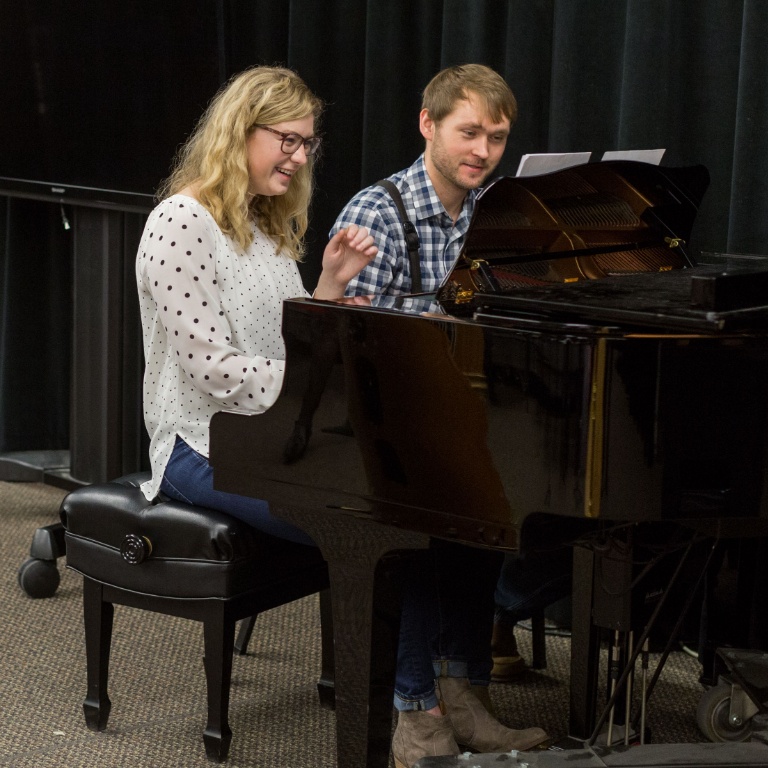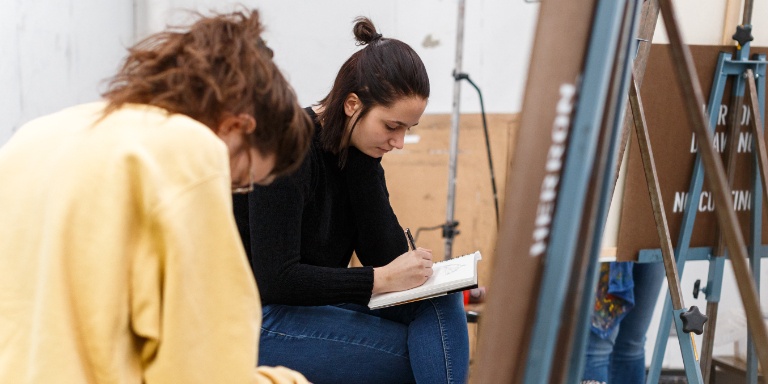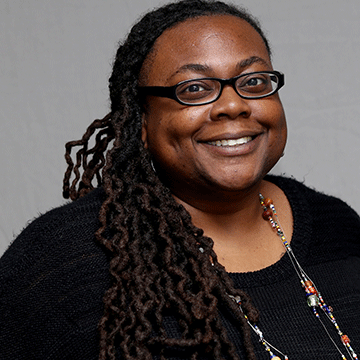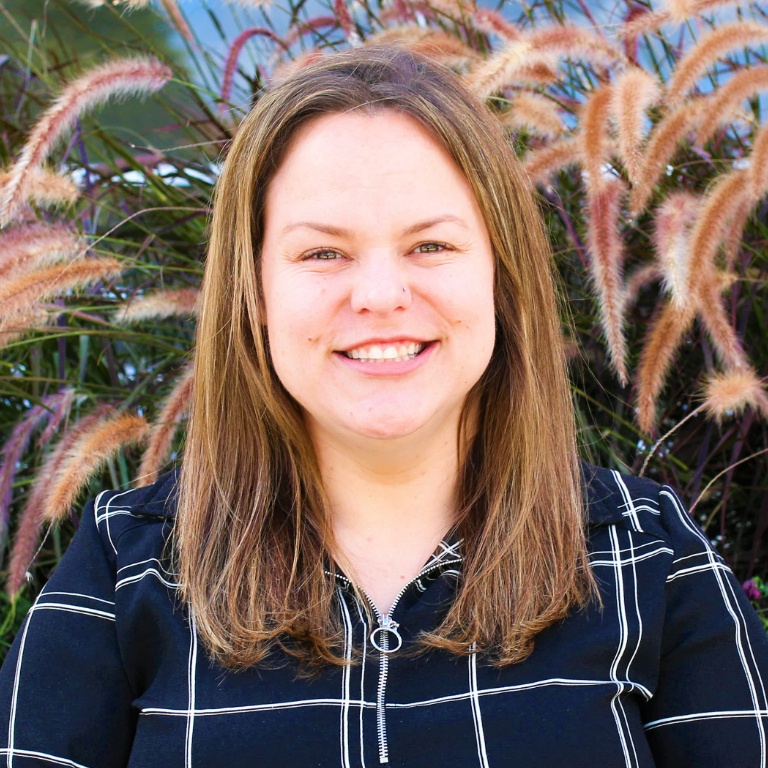
Director of Operations
The Arts, Sciences, and Technology (AST) team advises students who want to pursue degrees related to STEM and to expressing, studying, or improving the human experience. More specifically, the majors they support include:
We walk alongside you to provide academic and career advising to guide you toward your degree-granting school and to help you explore what career paths are available to you.
We encourage all our students to get the most out of their education by participating in hands-on learning experiences, such as research, study abroad, service learning, and internships. These opportunities prepare you for graduate school, professional school, or your career, whichever path you choose after graduation.



Meet who you’ll be working with on your academic journey.

Director of Operations

Student Success Advisor/Team Coordinator, AST Cluster

Student Success Advisor, AST Cluster

Student Success Advisor, AST Cluster

Career Consultant, MCE and AST Clusters
Student Success Advisor, AST Cluster
Explore majors related to the arts, sciences, and technology.
Inspire kids to use their imagination and create works of art. In this major, you’ll learn to teach art to K–12 students of all backgrounds at both public and private schools. Work in classrooms and behind the scenes creating visual arts curriculum for schools, museums, and community-based organizations.
Herron’s art education programs prepare you to teach art in public and private schools (K-12). In the diverse settings of Indianapolis schools and museums, you will learn the reflective practice of teaching young people of all backgrounds to create and to respond to art in today’s world. This major combines classes from Herron and the School of Education.
Employment of accountants and auditors is projected to grow 6 percent from 2023 to 2033, faster than the average for all occupations.
About 130,800 openings for accountants and auditors are projected each year, on average, over the decade. Many of those openings are expected to result from the need to replace workers who transfer to different occupations or exit the labor force, such as to retire ( Occupational Outlook Handbook, 2025).
According to the IU Indianapolis First Destination Survey in 2021, the average starting salary for graduates from the School of Education was $41,859, and the median was $42,830.
The national median annual salary for high school teachers was $61,820 in 2021 ( Occupational Outlook Handbook).
(This section is intended for informational purposes, not prediction of actual salary.)
Art education majors often pursue advanced degrees in the following areas:
*These careers require additional training or education.
Admission by application
Students interested in education tend to be a passionate bunch. We're home to a number of student organizations dedicated to different facets of teaching and education.
Study abroad is much more than a trip—it’s an intellectual and cultural adventure that will change the way you see the world, other people, and yourself.
You can add to your built-in student teaching experience through community engagement. From service projects to conferences, you get a head start on lifelong learning.
Combine knowledge of art, history, science, language, culture, and tradition with this major. You'll study art movements from prehistoric periods to present day, interpret works of art, and make connections between social and cultural contexts across history and throughout the world.
At Herron, you'll learn how to write and to talk about art in the context of history, science, language, culture, and tradition, exploring major movements from Prehistoric to the last two decades. Through visual analysis, historical research, and defined theoretical perspectives, you'll interpret works of art and will make connections between social and cultural contexts across history and throughout the world.
Employment of archivists, curators, and museum workers is projected to grow 12% from 2021 to 2031, much faster than the average for all occupations. About 4,700 openings for archivists, curators, and museum workers are projected each year, on average, over the decade. Many of those openings are expected to result from the need to replace workers who transfer to different occupations or exit the labor force, such as retirement ( Occupational Outlook Handbook, 2022).
According to the IU Indianapolis First Destination Survey in 2021, the average starting salary for Herron graduates was $34,677, and the median was $35,000.
The national median annual salary for archivists, curators, and museum workers was $50,120 in 2021 ( Occupational Outlook Handbook).
(This section is intended for informational purposes, not prediction of actual salary.)
Art history majors often pursue advanced degrees in the following areas:
*These careers require additional training or education.
Admission by application
Herron’s student organizations will help you build professional and personal relationships within your discipline.
Herron's study abroad programs are a powerful way to discover the historical impact of art and design in the world and over time while making memorable friendships.
Guidance from Herron Career Services is tailored to your needs at all levels throughout your journey—including internship and networking with alumni.
A.I. is the future. It offers convenience, increases productivity, and propels innovation in fields of all kinds. Earn a bachelor’s degree in A.I. to proactively position yourself for success as businesses and technologies evolve.
AI reaches across platforms at enterprise scale, offering convenience, increasing productivity, and propelling innovation in fields from public safety to intuitive logistics. It will displace many traditional jobs—but it has the potential to create even more opportunities. This major prepares you for jobs in fields such as user experience (UX) engineering, where AI technologies are integrated and evaluated for human interaction and compliance.
Employment of computer and information research scientists is projected to grow 21% from 2021 to 2031, much faster than the average for all occupations. About 3,300 openings for computer and information research scientists are projected each year, on average, over the decade. Many of those openings are expected to result from the need to replace workers who transfer to different occupations or exit the labor force, such as retirement ( Occupational Outlook Handbook, 2022).
According to the IU Indianapolis First Destination Survey in 2021, the average starting salary reported for informatics and computing graduates was $60,205, and the median was $55,000.
The national median annual wage for computer and information research scientists was $131,490 in 2021 ( Occupational Outlook Handbook).
(This section is intended for informational purposes, not prediction of actual salary.)
Graduates of this program will have a wide array of opportunities for advanced degrees. Common programs for graduate school include:
Admission by certification
Luddy Indianapolis has many student organizations, which are a great way to build your skills, network, and grow as a professional.
Undergraduate research experiences enable you to develop important problem-solving skills and experience for your future career.
Grow your skills through internships or part-time jobs. Learn more through Luddy Indianapolis Career Services.
Learn what there is to know about organisms’ lives, with foundations in cell theory, evolution, genetics, energy, and more. Students pursuing this degree can earn a Bachelor of Arts or a Bachelor of Science.
The biology major places an emphasis on science and mathematics courses and is designed to prepare students for graduate study and for jobs in industry, as well as for medical and dental schools.
Through coursework and research, you'll gain an understanding of foundational events in biology, as well as current developments and discoveries. The major prepares you to use scientific knowledge to make informed decisions benefiting all living things.
At IU Indianapolis, you can choose from these majors and degrees within Biology:
Employment of biological technicians is projected to grow 9% from 2021 to 2031, faster than the average for all occupations. About 12,200 openings for biological technicians are projected each year, on average, over the decade. Many of those openings are expected to result from the need to replace workers who transfer to different occupations or exit the labor force, such as retirement ( Occupational Outlook Handbook, 2022).
According to the IU Indianapolis First Destination Survey in 2021, the average starting salary reported for graduates with a Bachelor of Science in Biology was $40,333, and the median salary was $40,000.
The national median annual salary for biological technicians was $48,140 in 2021 ( Occupational Outlook Handbook).
(This section is intended for informational purposes, not prediction of actual salary.)
Between 25% and 50% of biology students proceed directly to graduate school in biology or biology-related fields or to schools of medicine, veterinary medicine, or dentistry.
In addition, biology majors often pursue advanced degrees in areas such as:
Undergraduate research experiences enable you to develop important problem-solving skills and experience for your future career.
The IU Indianapolis Center for Service and Learning has many service-oriented programs that allow you to work with and impact your community in endless ways.
Grow your skills through internships or part-time jobs. Join the School of Science Career and Internship site in Canvas for additional information and resources.
Discover how you can use information technologies to improve health care. Learn biomedical data analytical skills and their applications, gain valuable knowledge and research experiences, and prepare for a variety of careers. This major has three tracks: bioinformatics, health informatics, and premedical informatics.
The field of biomedical informatics drives innovations in information technologies for biological and medical data management, analysis and visualization, and their applications to biological systems and medicine. In this program, you will learn biomedical data analytical skills and their applications and will gain valuable knowledge and research experiences that will prepare you for a variety of careers as well as for graduate and professional school. The biomedical informatics major has opportunities for accelerated graduate degree programs in bioinformatics and health informatics.
Employment of health information technologists is projected to grow 17% from 2021 to 2031, much faster than the average for all occupations. About 3,400 openings for health information technologists are projected each year, on average, over the decade. Many of those openings are expected to result from the need to replace workers who transfer to different occupations or exit the labor force, such as retirement ( Occupational Outlook Handbook, 2022).
According to the IU Indianapolis First Destination Survey in 2021, the average starting salary reported for School of Informatics and Computing graduates was $60,205, and the median was $55,000.
The national median annual salary for health information technologists was $55,560 in 2021 ( Occupational Outlook Handbook).
(This section is intended for informational purposes, not prediction of actual salary.)
Technological advances come rapidly in the informatics field, so graduates often choose to pursue further education in a variety of fields, such as:
Admission by certification
Study abroad allows you to learn, grow, and gain new skills. Luddy Indianapolis has two programs in Greece and Finland.
Grow your skills through internships or part-time jobs. Learn more through Luddy Indianapolis Career Services.
Luddy Indianapolis has many student organizations, which are a great way to build your skills, network, and grow as a professional.
View upcoming academic and career events that help put you on the right path to achieving your goals.
There are no events at this time.
Not sure if you want to pursue an arts, sciences, or technology degree? Explore majors under other specialized support teams in Academic and Career Development.
IU Indianapolis
Academic and Career Development
Taylor Hall, 3004
815 W Michigan St
Indianapolis, IN 46202
Monday: 8 a.m.–5 p.m.
Tuesday: 8 a.m.–5 p.m.
Wednesday: 8 a.m.–5 p.m.
Thursday: 8 a.m.–5 p.m.
Friday: 9 a.m.–4 p.m.
Saturday: Closed
Sunday: Closed